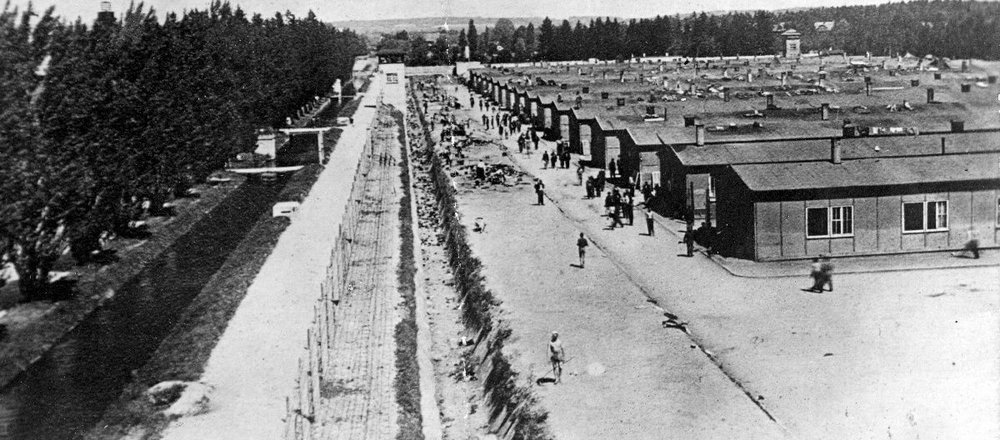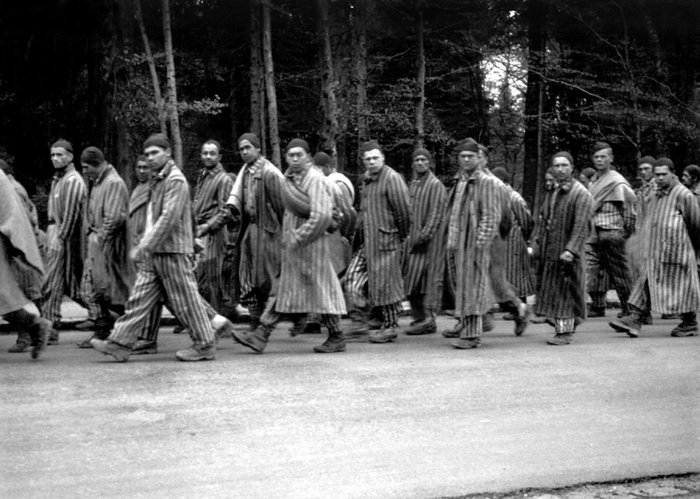Elie Wiesel's Biography - Ch 4

1st December 2019
Gleiwitz
It was Rosh Hashanah - the end of the Jewish year and a service was held at the Appelplatz. For Elie, it was a strange day. He didn't feel much like fasting and he certainly didn't feel much like praising Him. For Elie, these things seem to be more dangerous; to fast when you were starving to death. Ludicrous. Elie's faith in his religion had gone.
Elie had since been moved to the Construction Kommando, he was no longer with his Father. Elie's day involved heaving heavy concrete slabs for twelve hours a day - exhausting work. A vicious rumour began to circulate the camp one day, that 'Selection' was to take place the very day. Elie's thoughts immediately shifted to his Father - he had begun to look extremely worn. Elie was worried about him. The time came when Elie had to parade in front of the officers deciding on his fate - he ran so fast past them that Elie felt they didn't even have time to blink. Numbers were not read immediately, but instead inmates had to wait sometimes days to learn their fate. Fortunately, the order for Elie's selection did not come and likewise, his Father also passed. Others, however, were not so fortunate.
It wasn't long after this event, that the Winter properly took hold. Icy winds were blasting the camp and the inmates were not issued with any extra clothing. Elie developed an issue with his foot. He visited the Infirmary to see what advice they could offer him, conscious that he did not want to appear weak to the guards. The Doctor had insisted that they operate on Elie's foot, it was the only solution to the problem that Elie was facing. The Infirmary turned out to be 'not so bad' after all. Elie was bedded next to a frail Hungarian Jew, who constantly warned Elie of the dangers of being in the Infirmary too long. The operation went ahead and the Doctor pleasingly told Elie that after two weeks, his foot would feel as good as new.
Just two days passed, however, and news had reached the camp that the Russian Red Army was fast approaching. The SS gave a camp-wide order for the inmates to prepare to march. Elie's foot was still swollen and consideraby lame. To march on this poorly foot would be excrutiantingly painful. The alternative was to stay in the Infirmary but Elie beleived that if he did so, he would be executed by the departing SS. There was no other choice but to march. Snow was falling and the cold was biting. Elie's foot was burning but under the SS' orders, the inmates marched from Buna-Monowitz heading to where they didn't know. Elie's father walked by him, supporting him when necessary but still, Elie couldn't show any weakness. Any inmates flailing on the march were shot on the spot and left by the side of the path. It soon transpired that the inmates were heading for Gleiwitz - a camp farther north from where they had previously been. Elie had survived the first part of the SS' retreat back into Germany - something that later became known as the 'Death Marches'.

Elie later recalled how he later discovered that the patients who were too unwell to march and who stayed in the Infirmary, actually weren't executed by the SS but were instead liberated by the advancing Red Army. Fate sometimes leads us on strange paths.'
This chapter has been contributed by Chiedza Ziswa, Douglas Kwizera, Antonio Smit and Yasmina Diallo.








